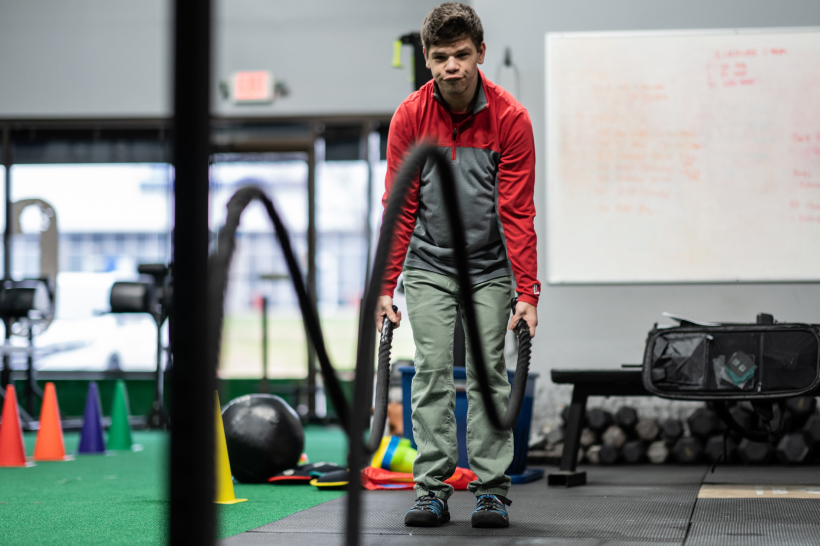Some of you may be feeling anxious and uncertain about what to do in light of the government’s encouragement for us all to get vaccinated against the disease. If you’re thinking about getting vaccinated, but aren’t sure whether or not you should, we at Plan Partners can’t tell you whether or not you should, but if it’s something you’re considering, we’ve put together some information that will help you understand your choices and where you stand.
Who is eligible to receive the vaccine?
Vaccines are now available to all adults in Australia over the age of 5 following recent legislative amendments made by the Australian government to include children. Even if you do not have a Medicare card, you are still able to receive the vaccine at no cost.
Participants in the NDIS and people working in the disability sector have been given priority access to the vaccine so that they can be protected from the disease. This indicates that you should not have to wait for as long to get an appointment at a vaccination clinic that is run by the government.
How can you get vaccinated against the disease?
You can get vaccinated at one of these three primary locations: pharmacies, general practitioners’ offices or medical clinics, or government vaccination hubs.
Participants in the National Disability Insurance Scheme (NDIS) and disability workers are given priority access to government hubs. Your neighbourhood pharmacy also offers a more straightforward way to make an appointment for a vaccination, which you can do now. You will immediately receive an email containing a simple access link for bookings, which will enable you to schedule an appointment with merely a few mouse clicks. To locate the vaccination clinic that is geographically closest to you and make an appointment, you can use the government’s Covid 19 Vaccine Clinic Finder.
Is it possible for support workers to assist participants in getting vaccinated?
In recognition of the significant contribution that support workers make to the rollout of the vaccination programme, the government has instituted a one-time payment of $150 to support workers who assist NDIS participants in making appointments at vaccination clinics.
Is there any encouragement given to those who work in the service industry to get vaccinated?
You may be eligible to receive a payment of one hundred dollars (AUD) if you are a registered provider in the state of Victoria or certain regions in the state of New South Wales. This payment will assist you in covering any costs that are associated with receiving your COVID-19 vaccination. This payment comes straight from the National Drug and Information Authority (NDIA), and it is a component of the effort that the Australian government is making to combat outbreaks in those states.
Is getting vaccinated a requirement for you?
Let’s take a look at some of the fundamentals, but keep in mind that this is a complicated problem that is likely to evolve in the near future.
Vaccinations are not required for school attendance in Australia at this time. Having said that, if you choose not to get vaccinated, there are some restrictions placed on the things you are able to do. These limitations include limitations on the types of venues and industries in which you are allowed to work.
For instance, the state of Victoria has mandated that all authorised workers receive certain vaccinations. Because of this, any Victorian service provider who has an authorised worker permit must have received at least one dose of the vaccine by October 15, and must have received two doses by November 26 in order to continue going to their place of employment after that date.
It is possible that additional states and territories will introduce regulations that are analogous to these, particularly in regard to people working in the disability sector. It is within the NDIS participant’s right to request that any of their service providers receive vaccinations, regardless of the mandates that are currently in place. The participant is free to switch service providers in the event that the provider of the service refuses.
Larger organisations are obligated to comply with the participant’s request by supplying them with an additional staff member who is vaccinated against the disease. If a service provider or support worker refuses to provide supports to an NDIS participant because of the participant’s vaccination status, the provider or support worker may be in violation of the NDIS Code of Conduct, which safeguards the rights of NDIS participants.
For some individuals, the subject of vaccinations can be a touchy subject, particularly in light of the fact that COVID-19 poses a significant threat to a sizable number of individuals with disabilities. When discussing vaccinations, keep this in mind, and make sure to treat each other with respect and dignity at all times. Keep in mind that none of us are going through this alone.
Where can I obtain additional information regarding vaccinations?
If you have any further inquiries regarding COVID-19 vaccines, it is highly recommended that you direct them to official health sources, healthcare professionals, or government resources such as the vaccine information page on the website of the Australian Government.
It can be challenging to differentiate between fact and fiction when there is so much discussion about vaccines available both online and in the mainstream media. Because of this, it is imperative that you only take the advice of qualified medical professionals. At the end of the day, your decision and your wellbeing are the most important things to consider. You owe it to yourself to provide the highest level of defence available.
In what other ways does the NDIS ensure the safety of its participants and providers?
During the pandemic, the National Disability Insurance Scheme (NDIS) has implemented a number of new safeguards to ensure the safety of its participants and service providers. To name a few, these include enabling participants to use NDIS funds to purchase personal protective equipment (PPE), easing the transition to online therapy sessions, and streamlining the process by which participants can have meals delivered to their homes.






